Turtle flown 5,000 miles for new life in Scotland
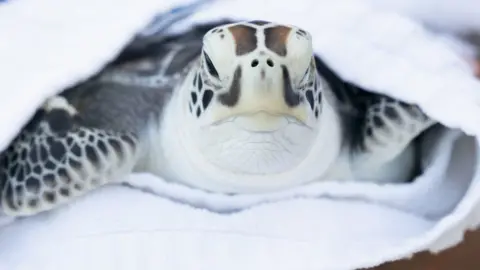 PA Media
PA MediaA sea turtle has been given the chance of a new life in Scotland after being found injured and entangled in netting in the Maldives.
April, an olive ridley sea turtle, was in care at the Turtle Rehabilitation Centre after being rescued in Raa Atoll in April 2019.
Vets discovered she needed long-term care and would not survive in the wild.
The turtle has now been relocated 5,000 miles (8,046km) away to Sea Life Loch Lomond at Balloch.
The centre has taken her in as part of an international turtle conservation effort.
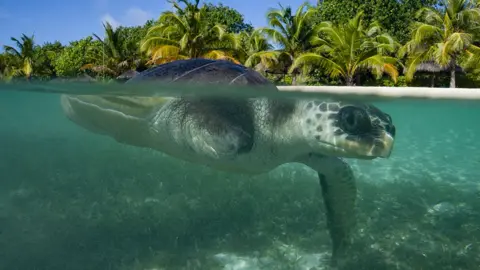 PA Media
PA MediaWhen April was found she was floating on the ocean surface, entangled in netting with a plastic bag around her neck.
She was missing her right front flipper because of the netting and her left front flipper was injured by the friction caused by the plastic bag.
An X-ray later revealed she was also suffering from a lung infection, with possible damage to her lungs.
Vets also found that April suffers from buoyancy issues and cannot fully immerse herself underwater.
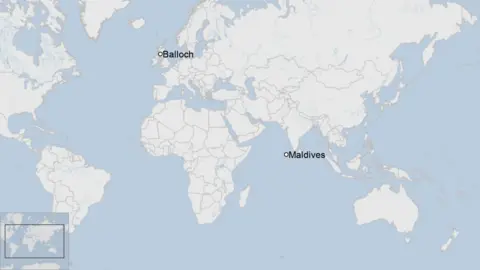
Two Maldives-based environmental agencies, Reefscapers And Marine Savers, as well as the UK's Sea Life aquarium business and its conservation charity the Sea Life Trust teamed up with airline IAG Cargo to fly April to her new in Scotland.
April joins five other sea turtles taken to new homes through the Flying Turtles Project, while Marine Savers has rehabilitated and released more than 180 others to date.
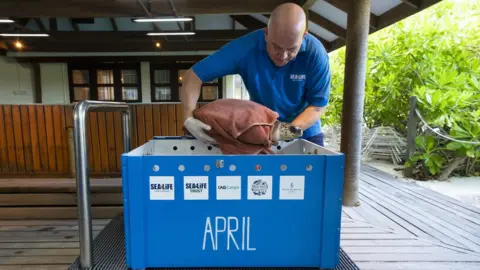 PA Media
PA MediaKathryn Angel, Sea Life Loch Lomond's general manager, said: "We are thrilled to welcome April to the Loch Lomond family. She has settled in brilliantly.
"To have a turtle in our facility once again is a real pleasure."
She added: "April suffered injuries as a result of plastic pollution, so by having April on site at Sea Life Loch Lomond, children can actually see the impact that plastic pollution can have on the creatures first hand."
Andy Torbet, Sea Life Trust ambassador, added: "When you see an injured turtle up close and personal with injuries caused by ghost nets and plastic pollution, that sort of issue is driven home a lot more intensely."
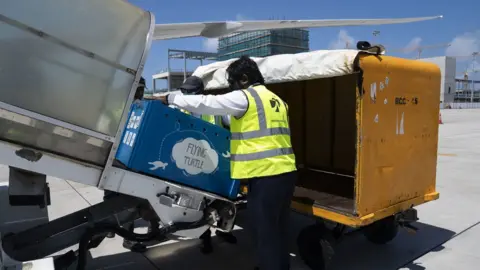 PA Media
PA MediaThe name for the olive ridley sea turtle is linked to the colour of its shell.
Conservation charity WWF said they were currently the most abundant of all sea turtles, but are vulnerable to disturbance because they nest in only a few places.
